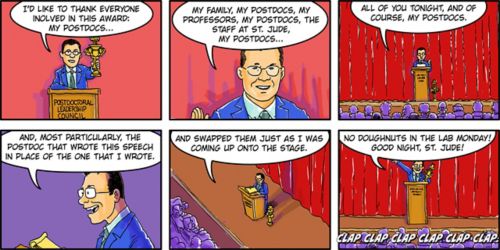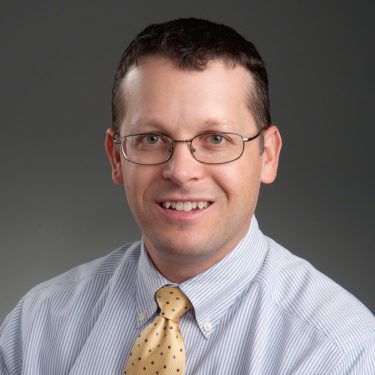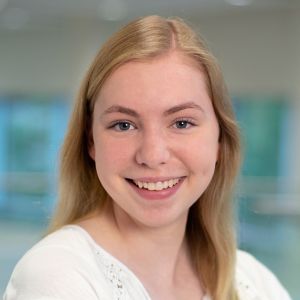St. Jude Family of Websites
Explore our cutting edge research, world-class patient care, career opportunities and more.
St. Jude Children's Research Hospital Home

- Fundraising
St. Jude Family of Websites
Explore our cutting edge research, world-class patient care, career opportunities and more.
St. Jude Children's Research Hospital Home

- Fundraising
Postdoc mentoring: How one lab created a culture of support and success

Postdoc mentoring is about bringing up the next generation of scientists.
Postdoc mentoring is about more than helping people conduct experiments. For Mark Hatley, MD, PhD, of St. Jude Oncology, being a mentor means training younger scientists so that they can address new research questions and accomplish more than he ever could alone.
“We can make advancements in our research,” Hatley says. “But the best way to broaden our impact on the scientific community is not through the actual work we’re doing but through bringing up the next generation of scientists.”
Because of his dedication to training those in his lab, Hatley was recently named Mentor of the Year by the St. Jude Postdoctoral Leadership Council. The Mentor of the Year Award is given annually to a faculty member who shows a strong commitment to the professional development and personal success of postdoctoral fellows and others at St. Jude.
The award was announced at the 2019 Vincent Kidd Memorial Lecture. This event was started to honor Vincent Kidd, PhD, a faculty member in Tumor Cell Biology who passed away in 2004. Although Kidd made important contributions to both basic science and translational research throughout his career, he is best remembered for his dedication to mentoring students and his investment in helping young scientists develop their careers.
When Hatley reflects on his own mentors, he has similar sentiments as those who worked with Kidd.
“I had fantastic scientific mentors as a graduate student and postdoc,” Hatley says. “They saw potential in me and gave me opportunities to do what I wanted to do.”
After having such a positive experience with training at University of Texas Southwestern Medical Center, Hatley planned on staying there and starting his own lab. Then he talked to St. Jude tumor cell biologists Charles Sherr, MD, PhD, and Martine Roussel, PhD, about the hospital’s shared resources and robust collaborative environment. Hatley soon realized all the resources and programs he would have had to develop at UT Southwestern were already available at St. Jude.

Mark Hatley’s mentors saw his potential, now he pays it forward by mentoring his postdoctoral research fellows.
Now that Hatley’s lab is established, he is dedicated to giving back and providing guidance to others. He regularly meets with each member of his lab, and his door is always open if anyone has an issue to resolve or exciting data to share.
“Research isn’t always easy,” he says. “But I try to take down barriers for them, so they can focus on moving forward and making progress.”
It’s no surprise, then, that members of his lab nominated Hatley for the Mentor of the Year award. Jason Hanna, PhD, was initially drawn to Hatley’s enthusiasm for science as well as his down-to-earth personality. As the lab’s first postdoc, Hanna has been able to watch Hatley start and manage his lab and his independent research career.
“He has set up a really great training environment for postdocs,” Hanna says. “He motivates you to get things done, but he also understands work-life balance.”
Casey Langdon, PhD, says he has had a great experience working as a postdoc in the lab. He says the positive environment encourages collaboration and friendships, thanks to the culture Hatley has created.
“He cares about the science, but he cares more about us as postdocs and what we want to do for our careers,” Langdon says. “I couldn’t have asked for a better postdoc mentor.”
Hatley is clearly an exemplary mentor, yet he still looks up to others at St. Jude. He says he was completely taken by surprise when he found out about the award, since many of the nominees were people he considers his own mentors.
“The other people who were nominated are all phenomenal,” he says. “To be selected from such a great group of scientific mentors was a real honor.”
It was an honor that was well-deserved. Hatley is always conscious of the bigger picture, ensuring that his lab members’ work not only helps the direction of the lab but also aligns with their future goals. And, when it comes to life outside of the lab, Hatley is just as much of a mentor, offering personal advice and support. Science research is always a team effort, but in the lab of the Mentor of the Year, the team is like a family.






